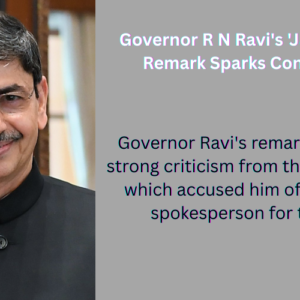Being + Adjective
This construction is utilized to describe and discuss various actions and behaviors.
Examples:
1. Why are you being so inconsiderate?
2. She is being overly dramatic about the situation.
3. Stop being so stubborn and consider alternative solutions.
4. They are being disrespectful by ignoring your requests.
5. It’s not worth being rude; try to communicate more politely.
6. He is being uncooperative in completing the assigned tasks.
7. Quit being so pessimistic; look for the positive aspects.
8. Why are you being so secretive about your plans?
9. She’s being careless with her belongings, and it’s causing problems.
10. Stop being so impatient; things will work out in due time.
Please note that when the adjective pertains to feelings, the continuous form is not applicable.
1. I was surprised when I learned about the unexpected turn of events. (NOT I was being surprised when I… Here we are talking about the speaker’s feelings, and hence a continuous form is not possible.)
2. She was disappointed to find out that her flight had been canceled. (NOT She was being disappointed… Here we are talking about the speaker’s feelings, and hence a continuous form is not possible.)
3. They were relieved when they finally received the good news. (NOT They were being relieved… Here we are talking about the speakers’ feelings, and hence a continuous form is not possible.)
4. We were shocked to discover the extent of the damage caused by the storm. (NOT We were being shocked… Here we are talking about the speakers’ feelings, and hence a continuous form is not possible.)
5. He was excited to learn that he had been selected for the prestigious scholarship. (NOT He was being excited… Here we are talking about the speaker’s feelings, and hence a continuous form is not possible.)
Being + Past Participle
“Being” can be followed by a past participle, and this structure is employed in the passive forms of both present and past continuous tenses.
1. The students are completing the assignment.
– The assignment is being completed by the students.
2. She is teaching the students grammar rules.
– The students are being taught grammar rules by her.
3. He is fixing the broken car.
– The broken car is being fixed by him.
4. The chef is preparing a delicious dessert.
– A delicious dessert is being prepared by the chef.
5. They are renovating the old house.
– The old house is being renovated by them.
6. The gardener is planting beautiful flowers.
– Beautiful flowers are being planted by the gardener.
7. The team is designing a new website.
– A new website is being designed by the team.
8. The workers are constructing a new bridge.
– A new bridge is being constructed by the workers.
9. She is writing an interesting novel.
– An interesting novel is being written by her.
10. The technician is fixing the malfunctioning computer.
– The malfunctioning computer is being fixed by the technician.
Instead of employing a clause with “because,” “as,” or “since,” we occasionally utilize an adverbial participle clause with “being.” This structure is primarily employed in a literary or formal style.
1. Being exhausted, she couldn’t finish the task. (= Because she was exhausted, she couldn’t finish the task.)
2. Being unprepared, they failed the surprise test. (= Because they were unprepared, they failed the surprise test.)
3. Being injured, he couldn’t participate in the match. (= Because he was injured, he couldn’t participate in the match.)
4. Being distracted, she missed the important announcement. (= Because she was distracted, she missed the important announcement.)
5. Being occupied with other commitments, he couldn’t attend the meeting. (= Because he was occupied with other commitments, he couldn’t attend the meeting.)
6. Being an experienced chef, she easily prepared a delicious meal. (= As she is an experienced chef, she easily prepared a delicious meal.)
7. Being a talented musician, he performed exceptionally well on stage. (= As he is a talented musician, he performed exceptionally well on stage.)
8. Being a diligent student, she always completes her assignments on time. (= As she is a diligent student, she always completes her assignments on time.)
9. Being a skilled photographer, he captured stunning images during the event. (= As he is a skilled photographer, he captured stunning images during the event.)
10. Being a responsible team member, he took charge of organizing the project. (= As he is a responsible team member, he took charge of organizing the project.)
11. Being exceptionally tall, he had to bend down to enter the low doorway. (= Since he was exceptionally tall, he had to bend down to enter the low doorway.)
12. Being a fast runner, she easily outran her competitors in the race. (= Since she was a fast runner, she easily outran her competitors in the race.)
13. Being well-prepared, they handled the unexpected challenge with ease. (= Since they were well-prepared, they handled the unexpected challenge with ease.)
14. Being a morning person, she enjoyed the peaceful sunrise every day. (= Since she was a morning person, she enjoyed the peaceful sunrise every day.)
15. Being a fluent speaker of multiple languages, he effortlessly communicated with people from different cultures. (= Since he was a fluent speaker of multiple languages, he effortlessly communicated with people from different cultures.)
News in Same Category
 Transitive and Intransitive Verbs
Transitive and Intransitive Verbs
 Ask Questions Using Would You, Could You, Will You and Can You
Ask Questions Using Would You, Could You, Will You and Can You
 Using ‘mind’ as a verb to instruct someone to be careful or take care of something
Using ‘mind’ as a verb to instruct someone to be careful or take care of something
 The term ‘mind’ to denote the act of taking care of someone or something
The term ‘mind’ to denote the act of taking care of someone or something
 He doesn’t mind, She doesn’t mind, I don’t mind
He doesn’t mind, She doesn’t mind, I don’t mind
 The Phrase “Never Mind”
The Phrase “Never Mind”
 Uses of ‘Mind’ as a Noun
Uses of ‘Mind’ as a Noun
 ‘In a Nutshell’: Summarizing Complex Ideas Concisely
‘In a Nutshell’: Summarizing Complex Ideas Concisely
 Difference Between Phrase and Clause
Difference Between Phrase and Clause
 Either… or…
Either… or…
 UGC opens doors for top global universities to establish campuses in India
UGC opens doors for top global universities to establish campuses in India
 JEE Advanced 2024: Key Dates and Enrollment Details Announced
JEE Advanced 2024: Key Dates and Enrollment Details Announced
 IIT Madras Launches Integrated Career Pathway Centre for Student Success
IIT Madras Launches Integrated Career Pathway Centre for Student Success
 IIM Lucknow to Soon Release CAT 2023 Answer Key
IIM Lucknow to Soon Release CAT 2023 Answer Key
 IIM Kashipur Announces Executive MBA Program for 2024, Invites Applications for EMAT-2023
IIM Kashipur Announces Executive MBA Program for 2024, Invites Applications for EMAT-2023
 ESIC Announces Examination Schedule for Group C Paramedical Posts
ESIC Announces Examination Schedule for Group C Paramedical Posts
 UKMSSB Announces Recruitment for 1455 Nursing Officer Positions: Application Process Begins on December 12
UKMSSB Announces Recruitment for 1455 Nursing Officer Positions: Application Process Begins on December 12
 NTA Extends JEE Main 2024 Registration Deadline to December 4
NTA Extends JEE Main 2024 Registration Deadline to December 4
 How to Ask Questions in English
How to Ask Questions in English
 Auxiliary Verbs
Auxiliary Verbs















































